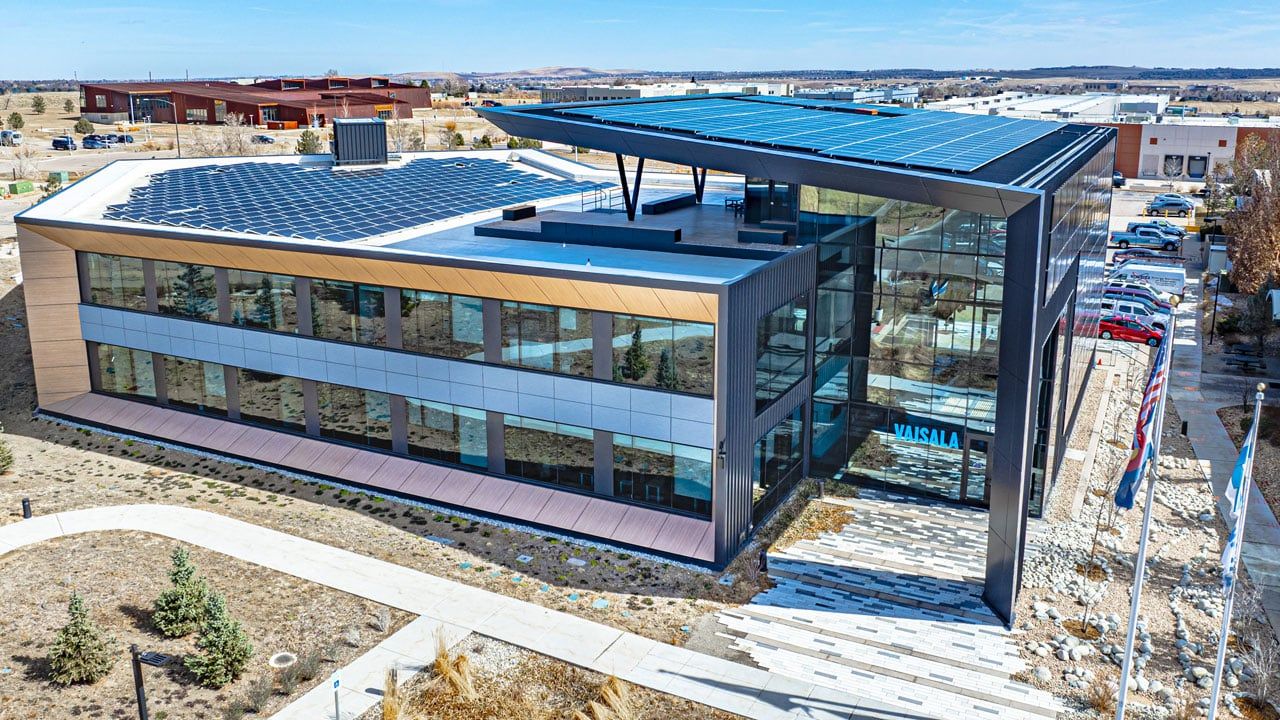RE Conference: Institutional frenzy? Not yet, industry professionals say
BOULDER — As cap rates decline, property values skyrocket and interest rates remain flat, institutional commercial real estate investors are beginning to dip their toes into the Boulder market. However, several systemic hurdles remain to be cleared before activity can heat up to the level of other major tech and biopharmaceutical markets.
That was the message out of the panel “Institutional Frenzy: Large-scale investors and the impact on smaller buyers” Thursday at BizWest’s Boulder Valley Real Estate Conference. The session was moderated by Juliana Massaro, special counsel at Berg Hill Greenleaf Ruscitti.
“Generally speaking, I don’t characterize [the institutional investing situation in Boulder] as a frenzy,” said panelist John Jugl, vice chairman of the western region for Newmark. “Large institutions come when they have the opportunity, but they don’t have many opportunities here. More often than not, you find that scale is what attracts institutional interests.”
SPONSORED CONTENT
Commercial Solar is a big investment, but not an overwhelming one
Solar offers a significant economic benefit for commercial property owners while also positively impacting the environment and offering a path to compliance for new municipal requirements like Energize Denver. A local, experienced solar installer will help you navigate the complexities of commercial solar to achieve financial success for your project.
And that scale is not really present in Boulder at the moment. There are several factors for that. One is the difficulty of constructing buildings that are friendly to institutional investors. They usually pursue facilities larger than those found in Boulder, Jugl said, and getting those big facilities built is not easy. The city’s height restriction for buildings is one reason why.
Boulder’s big impact fee for commercial real estate is another, said panelist Andrew Freeman, principal at Freeman Myre. That impact fee is $31 per square foot. On top of the long approvals process, that can be a barrier, Freeman said.
“It does make it a bit challenging,” he said.
Supply chain issues also present a problem, said panelist Jeremy Kroner, first vice president at CBRE. Kroner said that recent industrial projects that he has worked on have encountered such problems as 30-week delay for dock doors and 20-plus-week delay for studs.
“If it gets any worse, it could be a real problem,” Kroner said.
All of this has created a situation where institutional investors have a small amount of product to choose from. Once the remaining parcels of the Colorado Tech Center are built out, there will be a very limited amount of available space on which to develop the large commercial properties that attract institutional investors.
“We’re about to have a very acute situation for available product,” Kroner said. “Once the CTC buildings are online, that’s it, but the demand is not going away.”
That’s not to say that no institutional investors have come to the Boulder Valley. When the opportunity arises, they strike — particularly in the life sciences space and other industrial segments. Boston-based Tritower Financial Group LLC broke into the market in 2018 with its purchase of the Pfizer Inc. campus at 3200 Walnut St., which it flipped for $99 million — a nearly 50% profit — in January. In June, Tritower purchased for $21 million the former Trimble building at 2300 55th St. in Boulder, which it is converting to lab space.
Some original developers have also sold out of their projects to institutional investors. Developer W.W. Reynolds sold its Pearl East Business Park holdings in 2015; that property has changed hands among institutional investors several times since then with sale prices climbing every time.
Etkin Johnson sold its CTC holdings to Miami-based Starwood Capital Group in April for $393 million, the highest sale by dollar volume in Colorado history.
And Crescent Real Estate LLC is marketing its Flatiron Park holdings for an asking price of more than $600 million.
What could spur more institutional investors to enter the Boulder market? More big tech and life sciences tenants with good credit signing leases is the area is one factor; securing Apple as a tenant in Flatiron Park is why Crescent is able to list it at such a high price.
If cap rates continue to decline — they’ve gone down from an average of around 10% 20 years ago to under 6% now — that could also lead institutional investors to find value in the area.
“Value-add investing is as strong as it ever has been,” Jugl said. “More often than not low cap rates are reflective of a value-add strategy.”
Said Kroner: “I do think you’ll see cap rate compression, potentially under 4%. There’s no question that with the demand we’re seeing cap rates will continue to compress.”
Furthermore, said Freeman, as the amount of available undeveloped land in Boulder continues to dwindle, commercial development will have to take the form of infill and redevelopment projects — potentially large enough to squeeze out smaller investors.
Historically low interest rates are also a huge factor, Freeman said. Smaller investors are refinancing to take advantage of those, but if interest rates go up they may find themselves underwater on some of their properties, allowing bigger investors to come in and scoop them up.
“We’re all trying to figure out where we are in the market cycle,” Freeman said. “If interest rates go up, it’s sure going to have an effect on the market.”
© 2021 BizWest Media LLC
BOULDER — As cap rates decline, property values skyrocket and interest rates remain flat, institutional commercial real estate investors are beginning to dip their toes into the Boulder market. However, several systemic hurdles remain to be cleared before activity can heat up to the level of other major tech and biopharmaceutical markets.
That was the message out of the panel “Institutional Frenzy: Large-scale investors and the impact on smaller buyers” Thursday at BizWest’s Boulder Valley Real Estate Conference. The session was moderated by Juliana Massaro, special counsel at Berg Hill Greenleaf Ruscitti.
“Generally speaking, I don’t characterize [the institutional investing situation in…
THIS ARTICLE IS FOR SUBSCRIBERS ONLY
Continue reading for less than $3 per week!
Get a month of award-winning local business news, trends and insights
Access award-winning content today!


